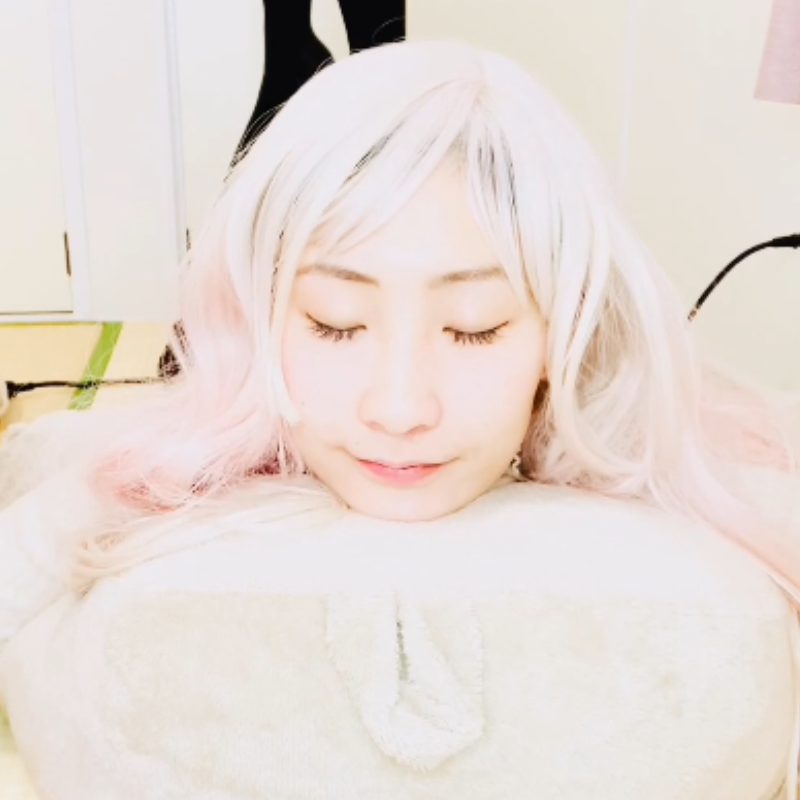Hey!
This is Mitsuki, I’m posting story videos on Youtube. Here I’m introducing the story called, “Death of Dragonflies“(トンボの死) written by 山川 方夫 (Yamakawa Masao) in both English and Japanese.
The author Yamakawa Masao was born in Tokyo, 1930 and wrote many short stories including “the Summer Procession”.
He was a talented young writer, however in 1965, he past away at the age of 34, in a car accident.
I quoted his story from 「青空文庫」 which is a Japanese digital library, encompasses thousands of works including out-of-copyright books or works.
I wanted to introduce you this beautiful and sad story, so I translated myself from Japanese to English in a honor of the author, Masao Yamakawa.
I hope you enjoy🌙
二人が知りあったのは、青年の夏休みのアルバイトからだった。
The two met, when the young man started working during summer vacation.
彼女はそのビルの一階にある喫茶店のウエイトレスをしていた。
She was a waitress at a coffee shop on the first floor of the building.
そして青年は、同じビルの四階と五階にひろいフロアをもつ電器会社に、夏休みの間だけやとわれた給仕だということだった。
And the young man was apparently a waiter who was hired only during the summer vacation by an electronics company, which owns the 4th and 5th floors of the same building.
ときどき彼女が注文をうけたコーヒーやジュースを運んで行ったり、青年のほうでも喫茶店にやってきたりして、やがて彼女の仲間のウエイトレスたちは、彼女がちょいちょい青年のことを話題にしたがるのに気づいた。
Sometimes, she brought the young man coffee and juice he ordered.
the other day he came to the coffee shop..
and soon her fellow waitresses noticed how she liked talking about him.
「あの人はね、とっても可哀そうなの」
と、よく彼女はいった。
She would often say,
“That man, I feel sorry for him.”
「なんでもお母さんが継母で、お父さんは死んじゃってて、弟や妹からもバカにされるし、親戚もだれもかまっちゃくれないんですって。でも苦学して、いっしょうけんめいアルバイトしながら夜間大学に行っているの。だけど、からだが疲れちゃって、やっぱり成績も悪いらしいのね。可哀そうなのよ、とっても」
Apparently he has a stepmother, his father is dead, his brothers and sisters make fun of him, and none of his relatives care about him. But he’s studying hard and going night college while working hard part-time.
But, it seems that his grades are bad because he is exhausted.
Poor thing, really.”
相手がからかうと、彼女は真赤になって怒った。
When the colleague teased her, she turned red with anger.
「ひどいわ、ひどいわ。そんなんじゃないのよ。結婚だなんて、そんなこと私ができないこと、あんただって知ってるじゃない」
You are so mean! It’s not like that.
Marrying him? You know I can’t do that..
たしかに、彼女には母と病気の弟と、まだ小さな妹とがいた。一家のただ一人の働き手である彼女は、まだ十九だった。
That was true. she had a mother, a sick brother, and a little sister. The only worker in the family, she was only 19.
夏休みが終ると、青年は電器会社には来なくなった。が、喫茶店にはときどき姿をみせ、彼女にコーヒーをおごられては、きまって小さな封筒に入ったなにかを受けとって帰って行くのだった。
After the summer vacation ended, the young man stopped coming to the electronics company.
But he would show up at the coffee shop from time to time.
she would buy him coffee, and after that he would always take something in a small envelope and go home.
その青年の後ろ姿をぼんやりとみつめながら、彼女はいつもひどく幸福そうな表情をうかべていた。
Staring blankly at the young man’s back, she seemed truly happy, always.
「なにを渡しているの? いつも」
あるとき同僚の一人がきくと、彼女はニコニコして答えた。
“What are you giving him, every time?” One day one of her colleagues asked her, she replied with a smile.
「あれ? あれはね、トンボのエサ」
ふしぎがる同僚に、彼女は善良そのものの顔で説明するのだった。
“That? That’s dragonfly’s bait.”
She explained to her wondering colleague with a kind expression on her face.
「あの人ね。小さな鳥カゴの中に二匹のトンボを飼っているの。オスのほうは太郎、メスはエミ子っていう名前なのよ。とっても可愛いくって、名前を呼ぶと羽ばたきして近寄ってくるんだって、ただね、あの人、働かなくちゃならないんで、エサをとってきてやるひまがないのよ。それで、私がかわりにいっしょうけんめいハエをとって、その死骸をああして封筒に入れて渡したげることにしてるの。……あの人、とっても感謝しているのよ」
He has two dragonflies in a small bird cage. The male one is named Taro, and the female one is Emiko. He says that they are so cute, when he calls their name, they flap their wings and come to him. But he has to work, he doesn’t have time to get their bait. So instead I catch flies and put them into the envelope, and giving them to him.
He is very grateful to me.
冷房がそろそろ不要になりはじめた秋のある日だった。喫茶店に、彼女あてに署名のない手紙が来ていた。
It was an autumn day, when air conditioning became almost unnecessary,
an unsigned letter was delivered to the coffee shop.
それを読むと、彼女は蒼白になり、手紙を引き破いた。
「……バカな人」といって、そして泣きはじめた。
As she read it, she turned pale and tore the letter to pieces.
“He’s stupid,” she said, and began to cry.
心配する同僚たちに、彼女はいった。
And she said to her worried colleagues.
「あの人はね、ウソつきなの。あの人、ほんとはあの電器会社の社長さんの一人息子なのよ。私、会社の人たちが話しているのを聞いて、はじめから知ってたのよ。
That man is a liar. He is actually the only son of the president of that electronics company. I knew it from the beginning when I heard people at the company talking about it.
来年大学を出たらすぐアメリカに留学するんで、事業の内容を実地に知るために夏休みをつぶしてたの。
He was going to America right after graduating from university next year, so he spent his summer vacation trying to get to know the details of the business.
もちろん継母なんかじゃないし、だれからもかまわれないどころか、みんなからチヤホヤされて育てられて、でもあの人は家での役目も将来もキチッときまっていて、そのコースから逃げだすことができないのよ。
Of course, he doesn’t have a stepmother, no one teased him.
Actually everyone was caring about him, spoiled him, but he had a fixed role in the house and a future decided for him, he can’t escape from that.”
そんな自分から解放されたくって、あの人は私にでたらめばかり話して聞かせてたんだわ。
I think he kept telling me lies because he wanted to be emancipated from that kind of himself.
……でも私、あの人のウソを信じてあげるふりをしてたの。だって、私がなにかしてあげられるのは、ウソのあの人でしかないんだし、あの人と私とでは、あの人のそんなウソのなかにしか、いっしょに住める場所がないんですもの。
But I pretended to believe his lies. After all, I could help him only when he was lying.
And we had no place to live together except in his lies.
だから、せめて来年、あの人がアメリカへ行って、私から消えてしまうまで、私は本気でずっとあの人のウソを信じてあげるつもりだったの。あの人のウソの中で、いっしょに暮したいと思ってたの。
That’s why, at least until next year, until he goes to America and disappears from me, I was going to believe his lies, with all my heart. I wanted to live with him, in his lies.
……それを、いまごろ、ダマすのが気がとがめて、だなんて、……」
But now, he says he feels guilty for lying to me….
泣きつづける彼女の汚れたハンド・バッグの口がひらき、ふくらんだいつもの小さな封筒がころげ落ちて、そこからなにかが床にこぼれた。
As she continued to cry, her dirty handbag opened and the little swollen envelope came out and something fell from it on the floor.
同僚たちは、一瞬それをハエの死骸と見あやまったが、じつは、それは湿った麦茶の出ガラだった。
彼のウソの生命をのばすために、それがけんめいに彼女がいつも運んでいたウソのエサなのだった。
For a moment, colleagues thought it was a dead fly, but it wasn’t; in fact it was a wet, used barley tea leaves. It was the false bait that she had been always giving him, in order to prolong his lies.
「……あの人、やっぱり一ぺんも開けてみなかったのね」
と、低く彼女はいった。
“… I knew he never opened it .. even once.” She said in a low voice.
晩い秋の街に顔を向け、そしてつぶやくようにくりかえした。
「そうね。……きっと、もう、トンボも死んでしまったのね」
She turned her face to the city in late autumn, and then muttered repeatedly. “Well…
The dragonflies must have died already.”
How did you like the story by Yamakawa Masao?
How did you like the story from Yamakawa Masao? I think this is a very bitter and beautiful story ….
I’ve uploaded a story of “Hoichi the Earless” too, please check this out if you like!
Thank you for reading!

おやすみなさい🌙


